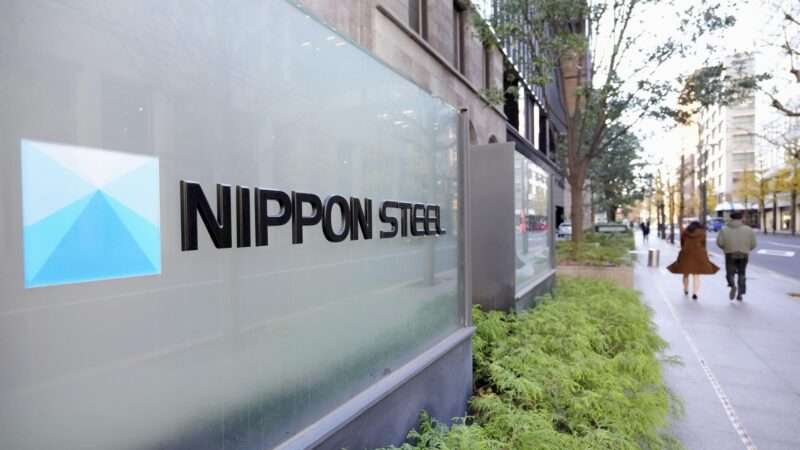Nippon Steel-U.S. Steel Merger Poses No National Security Threat

The Committee on Foreign Investment in the United States (CFIUS) was unable to reach a consensus on Japan’s Nippon Steel’s $15 billion acquisition of U.S. Steel. The very committee that is responsible for safeguarding the U.S. from compromising foreign investments doesn’t recommend blocking the merger, and neither should President Joe Biden.
CFIUS is an interagency committee chaired by the secretary of the Treasury, whose membership comprises the heads of the Department of Homeland Security, Department of Defense, Department of State, Department of Justice, Department of Energy, Department of Commerce, as well as the Office of Science & Technology Policy and the Office of the U.S. Trade Representative. The heads of each of these federal agencies were nominated to their positions by Biden, are aware of his public opposition to the merger, and still cannot unanimously support the president’s position on the matter.
CFIUS’s inability to recommend blocking the merger on national security grounds is not surprising: Japan is not an enemy of the U.S., but a close ally. The U.S. has been formally allied with Japan since the signing of the U.S.-Japan Security Treaty in 1951. In April, Biden and former Japanese Prime Minister Fumio Kishida issued a joint statement celebrating “a new era” of bilateral security cooperation and announcing “several new strategic initiatives to strengthen our defense and security cooperation [and] bolster economic security.”
A section of the joint statement details the two countries’ commitment to economic cooperation under the U.S.-Japan Competitiveness and Resilience (CoRe) Partnership, which the Biden administration announced in April 2021 to advance cooperation “on sensitive supply chains…and on the promotion and protection of critical technologies.” The statement also celebrates mutual investment, pointing to Microsoft’s $2.9 billion investment in AI and cloud infrastructure in Japan and Toyota’s $8 billion battery production investment in North Carolina—a mere 1 percent of Japan’s $800 billion in foreign direct investment in the U.S.
If mutual investment in critical industries like semiconductors and batteries doesn’t compromise national security, the burden of proof is on those opposing Japanese investment in American steel production to explain why it does. CFIUS could not meet this burden and refrained from issuing a recommendation accordingly. If anything, Nippon’s acquisition of U.S. Steel, and its multi-billion-dollar investments in the company, will bolster national security by increasing domestic steel production, argues Veronique de Rugy, senior research fellow at the Mercatus Center, in an article for Reason.
Despite close military ties between the U.S. and Japan, as well as their strong economic relationship, Biden has officially opposed Nippon Steel’s acquisition of U.S. Steel. One month before the joint statement, Biden released an official statement in which he stated that “it is vital for [U.S. Steel] to remain an American steel company that is domestically owned and operated.” David McCall, the president of United Steelworkers—the largest industrial union in North America—reiterated that U.S. Steel should remain domestically owned and operated in a statement on Monday, according to the Associated Press.
Protecting union jobs is not a matter of national security. Even if it were, Nippon Steel’s acquisition of U.S. Steel does not threaten its unionized workforce: Nippon has pledged “to invest $2.7 billion in United Steelworkers-represented facilities [and] to not lay off employees or close plants during the term of the basic labor agreement,” per A.P. Nonetheless, McCall expressed concern about the “long-term security and long-term viability” of plants under Nippon Steel ownership in the Fall 2024 edition of USW@Work.
President Biden has 15 days to decide whether or not to let the deal go through; he should follow the precedent set by the CoRe Partnership and permit foreign direct investment from an allied country that already employs one million American workers.
The post Nippon Steel-U.S. Steel Merger Poses No National Security Threat appeared first on Reason.com.
